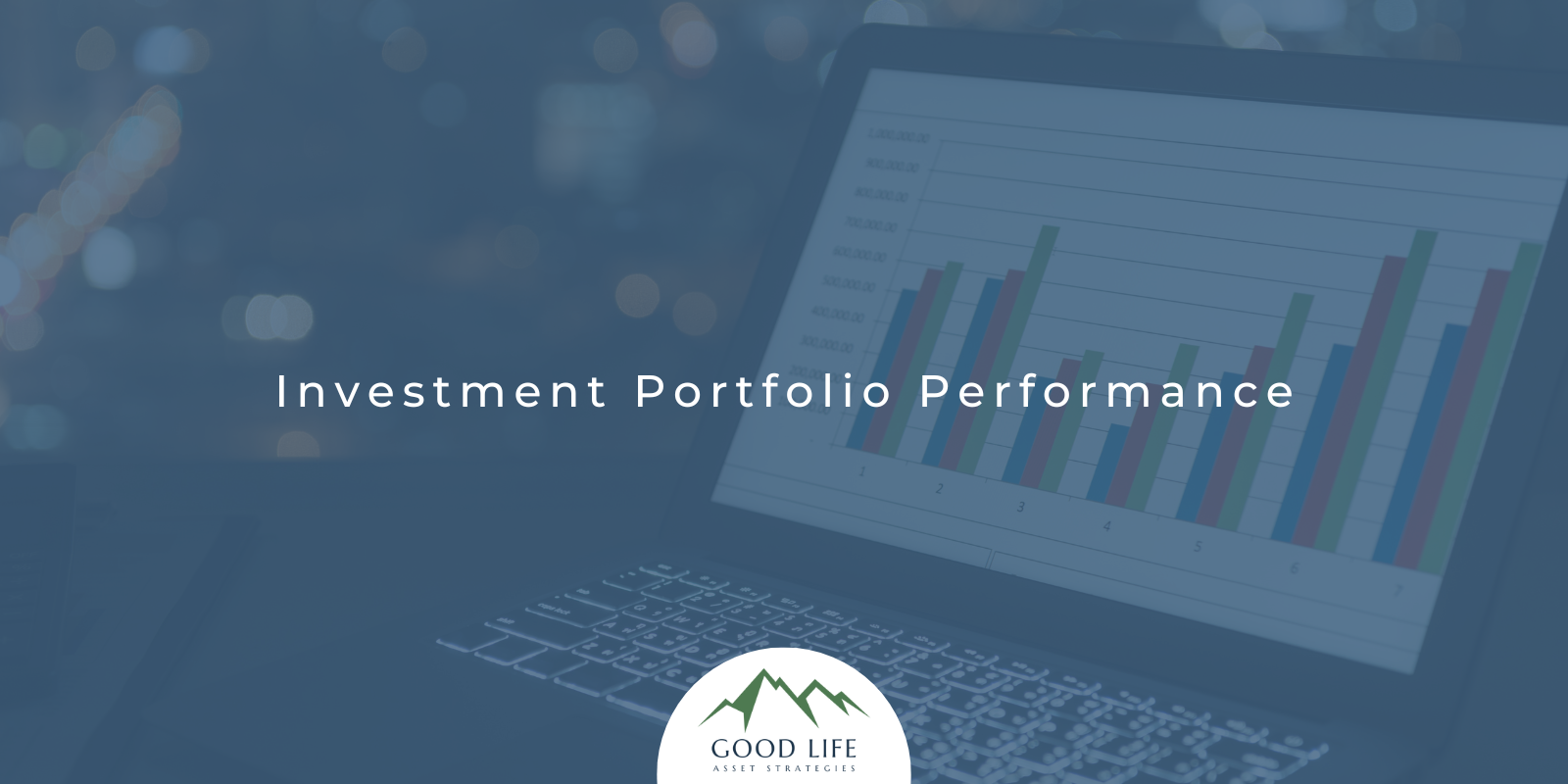- 817-864-8560
- justin@g-las.com
- Mon - Fri: 9:00am - 5:00pm

With so many opinions on investment options, knowing if your financial advisor has you in the best investments for your future is overwhelming. Evaluating the performance of your investment portfolio is crucial, as even a 1% annual underperformance against a comparable index or benchmark can add up significantly over time.
With the rise of low-cost index and passive funds, it’s important to ensure your investments keep pace with the benchmark it tracks. You may be leaving money on the table and might be better off switching to another fund.
Let’s look at some key points in evaluating your investment portfolio so you know what questions to ask your advisor.
Determining your required rate of return
The first step a good investment advisor should take is to determine your required rate of return to achieve your financial goals over time, taking into account your risk tolerances and other factors. Once established, your advisor will recommend an investment portfolio consisting of stocks and bonds aligned with your desired outcome.
The next step is to monitor your investment performance by comparing ETFs.
Your portfolio may be composed of a certain percentage of stocks and bonds, such as 70% stocks and 30% bonds, 90% stocks and 10% bonds, and so on. For a basic comparison, you can compare the entire stock portion of your portfolio to the ticker symbol “VT” (Vanguard Total World Stock ETF) and the bond portion of your portfolio to the ticker symbol “BND” (Vanguard Total Bond Market ETF).
For example, if your advisor has you in a portfolio consisting of 70% stocks and 30% bonds, you can compare your performance to a portfolio of 70% “VT” and 30% “BND.” If your portfolio is not at least keeping up with “VT” and “BND,” you may be better off holding these two ultra-low-cost ETFs.
It’s important to note that most active investment managers do not outperform the benchmark they are following, so the odds are already in your favor by simply buying an index fund. While some fund managers have shown the ability to outperform over time, they need to be continuously monitored to ensure they continue to do so, as past performance is not necessarily indicative of future performance.
Some advisors may build more sophisticated investment portfolios consisting of funds specializing in growth vs. value, small-cap vs. large-cap, international vs. emerging markets, and others. To make comparisons easier, I have compiled a list of ultra-low-cost funds you can use to compare individual fund holdings in your portfolio, if you prefer to do so. Any advisor should be able to perform a basic fund comparison upon request.
Here is a list of all equities for comparison:
For all bonds, use the “BND” Total Bond Market. There are plenty of other categories for bonds, but I recommend keeping it simple with “BND.” Here are more bond categories:
If a fund isn’t performing in line with a comparable low-cost index fund, it may be worth considering a move to another fund.
The expert financial advisors at Good Life Asset Strategies actively monitor and compare fund performance to ensure our clients’ investment portfolios are working toward their financial goals.
We are prepared to answer any of your investment questions and conduct thorough comparisons to ensure your funds are in the best possible funds. Contact us for a portfolio review.
The views expressed represent the opinion of Good Life Asset Strategies, LLC. The views are subject to change and are not intended as a forecast or guarantee of future results. This material is for informational purposes only. It does not constitute investment advice and is not intended as an endorsement of any specific investment. Stated information is derived from proprietary and nonproprietary sources that have not been independently verified for accuracy or completeness.
Good Life Asset Strategies, LLC is a registered investment advisor located in Fort Worth, Texas. Good Life Asset Strategies, LLC and its representatives are in compliance with the current registration and notice filing requirements imposed upon registered investment advisors by those states within which the firm maintains clients.
All information herein has been prepared solely for informational purposes, and it is not an offer to buy or sell, or a solicitation of an offer to buy or sell any security or instrument or to participate in any particular trading strategy. Such an offer can only be made in the states that Good Life Asset Strategies, LLC is either registered or a notice filer or an exemption from registration is available under the securities laws or other laws.
Certified Financial Planner Board of Standards, Inc. (CFP Board) owns the CFP® certification mark, the CERTIFIED FINANCIAL PLANNER™ certification mark, and the CFP® certification mark (with plaque design) logo in the United States, which it authorizes use of by individuals who successfully complete CFP Board’s initial and ongoing certification requirements.